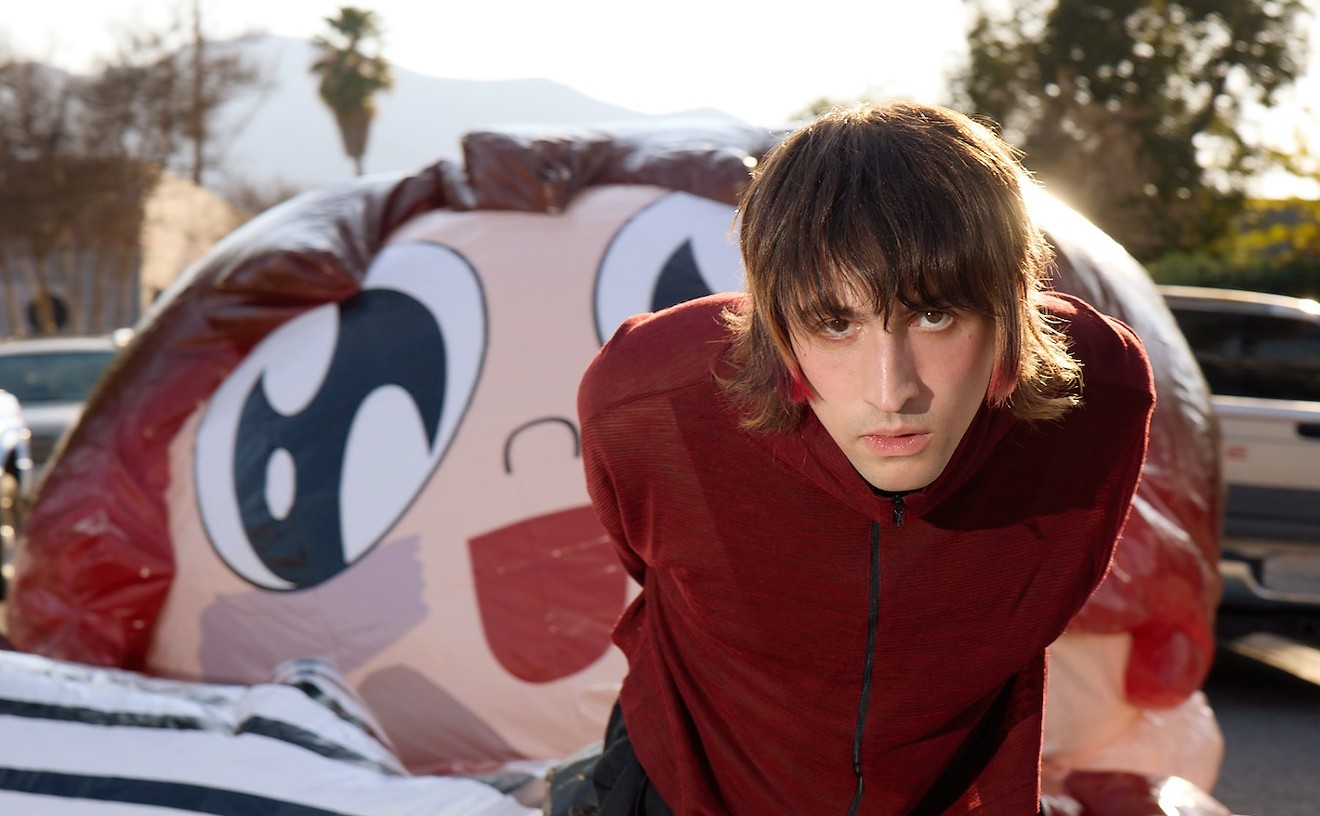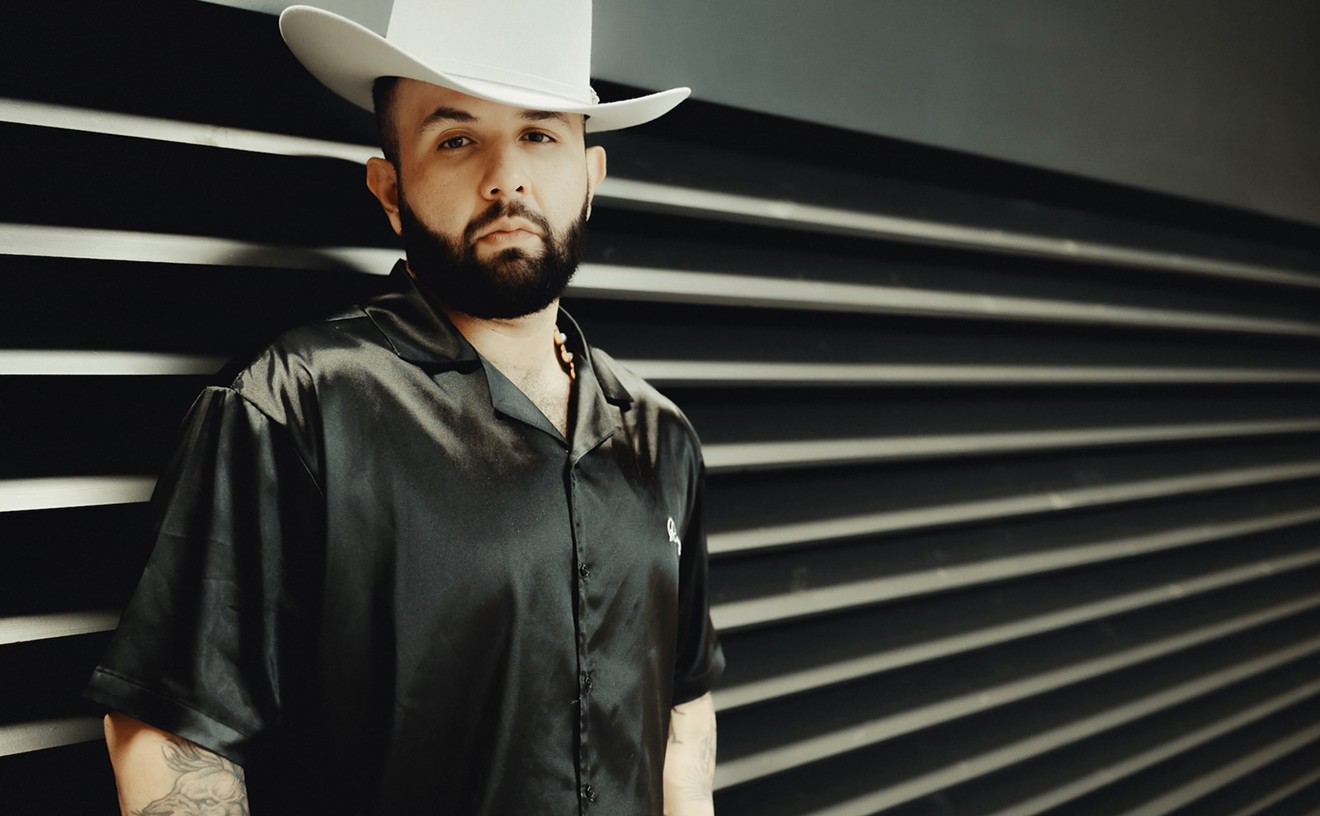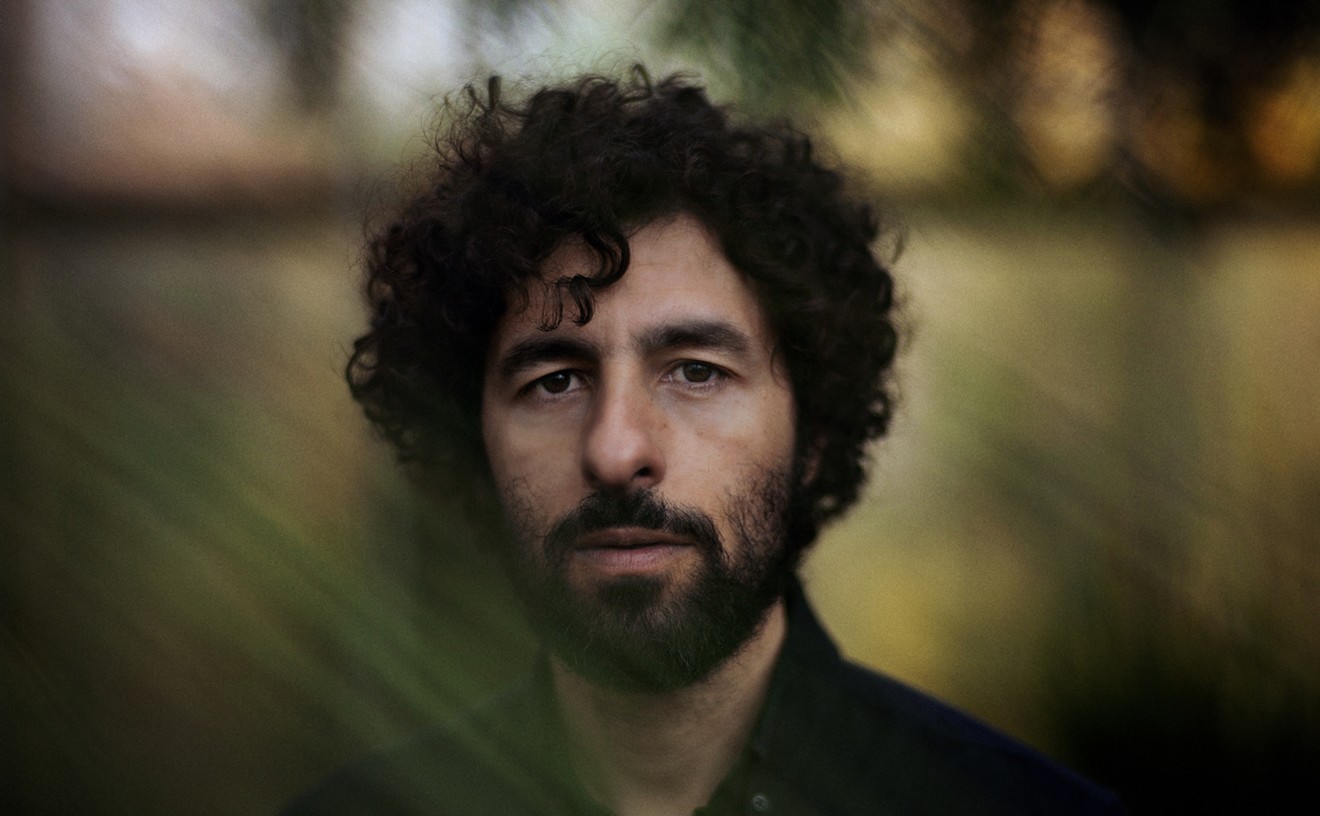But someone did remember him, all too well: a young woman with a three-year-old kid who bore a striking resemblance to Williams. The price of recognition was nearly $24,000 in back child support, plus another $400 per month. Only twenty years old and making just enough each night to last him until the next tour stop, Williams wasn't left with many options. He could take a square job and tough it out, chipping away at the debt slowly but surely.
There was only one thing he was really cut out to do -- born to do, you might say. He had fought the idea for years; it was one of the reasons he turned to punk rock in the first place. But with no other choice (at least not one that appealed to him), Shelton Williams dropped his first name and started over. Of course with his new name, Hank Williams III, and his new career as a country singer, Williams didn't have to start at the beginning. Picking up where the grandfather he never knew left off would work just fine. And the best place to start was Branson, Missouri, where tarnished country gold comes with a two-drink minimum.
"They didn't know if the kid was blood or fake or what the deal was, but they knew it was a tribute show from Hank III to Hank Williams, Sr.," Williams explains, calling from his trailer on the outskirts of Nashville, where he was born and raised. He's in between legs of a tour supporting his recently released debut for Curb Records, Risin' Outlaw. "It was just a learning ground," he continues. "We did 52 shows a month, two to three shows a day. Each show was an hour long, and singing to crowds that were very old. It's a place I never want to go back to unless I'm 60 and can't walk. But it was a good place for me to learn how to sing, really."
Williams freely admits that when he started out, his only intention was to milk his spot-on looks and passable voice for all they were worth, letting the gaunt ghost of his grandfather endorse his checks. Sure he loved old country music, but he would have grown a beard and sung the Monday Night Football theme with all his rowdy friends a dozen times a night if he thought imitating his father would pay more. He was an opportunist, and this was one opportunity he couldn't pass up. Besides, he knew his grandfather about as well as the people who came to see and hear him did. You can't dishonor a memory that you don't have. Williams doesn't offer much on the subject of his grandfather, except to say, "If Hank Williams had kept living, I'm afraid that he would have burned so many bridges that he might have been one of the most hated names in country music."
Likewise he couldn't dishonor the memory of his father, because he doesn't have much in that department either. He grew up with his mother, Gwen, Hank Jr.'s second wife, and saw his father only sporadically after his parents divorced, when Hank III was three years old. You can ask him anything you want about his father; just don't expect him to tell you much. There's nothing much to tell.
"I only see him a few times a year," Williams says. "That's the way it's always been. He's been busy, new wives and new kids and stuff. But I see him here and there, and everything's cool. I mean, we're at least able to talk. We don't fight or nothing. We just probably feel a little weird around each other." He laughs. "We've never really worked together. I've played with him when I was eleven or fifteen or something like that, but we haven't done any shows together, and we don't really talk about business. He talks about hunting and stuff. It's hard. It's like he doesn't wanna say nothing, really. So I've just gotta figure it out myself."
Williams had to figure out how to sing country for himself, too, and he didn't have much to go on. And as the flesh-and-bones ghost of his grandfather, he wasn't half bad. His tribute wasn't as crass as it could have been, at least by Branson standards. Still, until recently he was a novelty act, reaching his lowest point in 1996 when he teamed up with Hank Jr. and a beyond-the-grave tape-recorded Sr. (as Three Hanks) for the dreadful Men with Broken Hearts, giving an album's worth of classic songs the Natalie Cole treatment. Unfortunately most of the inspiration of the project was wasted on the not-so-clever name of the group. Williams is duly embarrassed by the album, either ignoring it or brushing past it in interviews.
Which is much the same way he treats Risin' Outlaw, an album he says "that I about 50 percent like." But hearing him talk about the disc, 50 percent seems to be a fairly high estimation. He doesn't sound angry about the situation, though, matter-of-factly ticking off a list of complaints that includes just about everything except the artwork.
"It's definitely too slick," he says. "They kind of killed my nasal sound on that album. And they pieced that album together over two years, man. That's just pathetic to do that. When I go in, whether it's two weeks or two months, it's constant. You know, we're gonna get this thing done, and that's our priority. I don't need to sing 99 vocal tracks and crap like that. They just overdo it and kill it. But you know, that's cool. I knew I'd have to deal with things like this if I ever got into a commercial label. But I'm still trying to be as independent minded, in ways of thinking and recordingwise, as possible."
A few years ago, Williams might not have said that. He had a rebellious streak, but he couldn't complain about the situation he was in, mostly because he'd put himself in it. He didn't care anyway: He'd rather be playing punk rock in a dingy bar, so if the country songs he was singing weren't absolutely perfect, he didn't mind. After all it was only a job, "a desperation move to get them off my ass," he says, referring to the one-night stand gone awry that began his country career. He just wanted to play his songs (well, his grandfather's songs, more often than not) and get the hell back on the bus so he could drink and smoke pot and forget a little bit.
Gradually he began to appreciate the songs he was singing, playing them because he liked hearing them just as much as the audiences did. As he took his show on the road, he learned that he didn't have to dye his punk-rock roots just because he became a country musician. He added more songs to his repertoire (supplementing a set list that already included Buck Owens, Merle Haggard, Waylon Jennings and Johnny Cash) and began playing them the way he wanted to.
"Then I started writing songs, and I met guys like Wayne Hancock and Dale Watson," Williams remembers. "Those guys opened me up, as far as saying, 'Man, you can still be punk rock, but you gotta do it with a country attitude. You just gotta swing it and play hillbilly, man.' And meeting those guys really changed my views, 100 percent. They turned me on to this old Texas swing and Webb Pierce; it just opened up a whole new realm."
He also went to extraordinary lengths to inject some realism into the songs he was writing. A little more than two years ago, he left the woman he'd been living with for seven years, for no good reason, except that he thought he needed the hurt before he could write songs like his grandfather. Looking back Williams regrets that the ploy worked out so well, sounding as if he wouldn't mind swapping authenticity for another chance.
"I broke my own heart," he admits. "I lived with a gal for seven years, and I shoved her out of my life just to feel that damn feeling. And son of a bitch, I felt it, I felt it. That's either helped me or hurt me, but it's given me that understanding. That's part of it: You can't be a country singer-songwriter if you've never had an official heartbreak. I had to experience that pain. It was close to two years ago, and I'm still having dreams about her. It's just one of those things."
Yet little of Williams's newfound appreciation of heartbreak can be heard on Risin' Outlaw, at least as far as his own compositions. There aren't any Hank Williams, Sr., songs on the trad-heavy disc, but there aren't that many Hank Williams III songs, either. Of the 50 or so tracks he's written, only 4 found their way on to the record, and only two of those were solo efforts. That, more than anything else, has him fed up with the way Curb has handled the project. He insists he isn't ready to leave the label yet but he vows that if he does stay, the next album will be done his way, no compromises.
"I know exactly what I want to happen, and if they can't make that happen, then we're gonna have a problem," he says. "I'm not gonna budge, man. I mean, I'm not gonna go through it. I got over 50 songs written, and I could barely get 2 of my own songs on the fucking album?" He laughs. "What's up with that? That's just the way it is for now. I had to get that first step out there, either to get more respect or to lose it, one of the two.
"I don't know," he continues, musing aloud. "I should be on an independent label. I'm just too wild. They tame me. They hold me back. I can't be what I need to be. We'll see, because I've got some pretty wild stuff, like 'I'm Here to Put the Dick in Dixie and the Cunt in Country.' I could still sing that in front of 60-year-olds and get them to whoop and holler."
For now he's less worried about what songs should or should not be recorded and more concerned with his band's live show, which he promises "isn't what our album really sounds like." Lately he's been thinking about the music he listened to growing up: the Kiss and Black Sabbath albums that led to the Misfits and Dead Kennedys. Back then all he wanted to do was play drums, and country wasn't cutting it. He needed something that would match his energy, and punk met his standards. And just because he's a country singer now doesn't mean he's forgotten that period of his life. During our conversation he becomes excited while discussing a poster he just had made up, for a concert that may or may not happen, featuring his group and his new friends, the Melvins. He recently recorded some vocals for use on the Melvins' upcoming album, and that band's drummer, Dale Crover, appears on a handful of tracks on Risin' Outlaw. Williams believes that a bill with both bands on it would go over well, if only because he believes no other country band rocks as hard as his.
"If one night we're playing a show that's like a Branson crowd, well, we can be a respectable band," he says. "But if the next night it's a crowd that's like tattoos and piercings, an 18-to-32-year-old crowd, we can go out and rock them as hard as we need to. I just want to put out as much of the energy while I got it. I've got the rest of my life to chill out and sing slow songs and stuff."










